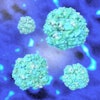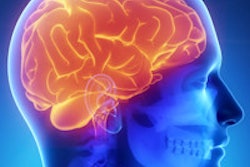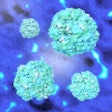Using high-resolution MRI, researchers at the University of Southern California (USC) for the first time have found that blood vessels in certain areas of older brains can break down, potentially leading to Alzheimer's disease.
The discovery, detailed in the January 21 issue of Neuron, involves the brain's protective blood barrier and how it can become "leaky" with age starting at the hippocampus, which is a critical area for learning and memory and is damaged by Alzheimer's.
The researchers, led by Dr. Axel Montagne from the USC Alzheimer's Disease Research Center, said the findings represent a significant step in understanding how the vascular system affects the health of the human brain.
The study analyzed contrast-enhanced MR brain images from 64 subjects of various ages and found that the early vascular leakage in the normally aging human brain occurs in the hippocampus. The blood-brain barrier also showed more damage in the hippocampal area among people with dementia than those without dementia, when controlled for age (Neuron, January 21, 2015, Vol. 85:2, pp. 296-302).
To further validate the methodology, the USC team also examined brain scans of young people with multiple sclerosis without cognitive impairment. They found no difference in barrier integrity in the hippocampus between those of the same age with and without the disease.
The researchers also investigated subjects' cerebrospinal fluid (CSF), which flows through the brain and spinal cord. Individuals with signs of mild dementia had 30% percent more albumin, a blood protein, in their CSF than age-matched controls, further indicating a leaky blood-brain barrier.
In addition, the CSF of individuals with dementia showed a 115% increase of a protein related to pericyte injury. Pericytes are cells that surround blood vessels and help maintain the blood-brain barrier. Previous research has linked pericytes to dementia and aging.
The results show that it may be possible to use the MRI brain scans to detect changes in blood vessels in the hippocampus before they cause irreversible damage, Montagne and colleagues concluded.




















